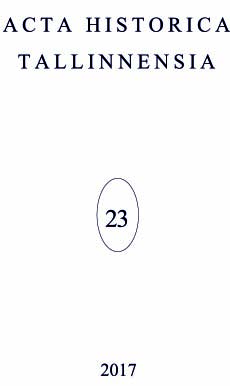LITERACY IN THE RUSSIAN EMPIRE IN THE LATE 19TH CENTURY: THE STRIKING CASE OF THE BALTIC PROVINCES
LITERACY IN THE RUSSIAN EMPIRE IN THE LATE 19TH CENTURY: THE STRIKING CASE OF
THE BALTIC PROVINCES
Author(s): Toivo U. RaunSubject(s): History, 19th Century
Published by: Teaduste Akadeemia Kirjastus
Summary/Abstract: This article focuses on the unique position of the Baltic Provinces of Estland, Livland, and Kurland in terms of literacy rates in the Russian Empire in the last decades of the nineteenth century. The modern censuses that began to appear by the 1860s revealed reading rates that were triple the all-Russian average in 1897, especially among the mainly Protestant nationalities (the Germans, Estonians, and Latvians). In contrast to the all-Russian situation where the cities and males were much more advanced in literacy skills, the Baltic Provinces also showed a striking equality among urban and rural areas as well as the two genders. The roots of the Baltic region evolving into this outlier position must be sought in certain key historical factors, including the Reformation and the onset of Lutheranism, the aggressive promotion of literacy by the Swedish state, the role of German pietism and the Moravian Brethren, and the early emphasis placed on at least a minimal education for all elements of the population.
Journal: Acta Historica Tallinnensia
- Issue Year: 2017
- Issue No: 23
- Page Range: 65-77
- Page Count: 13
- Language: English

